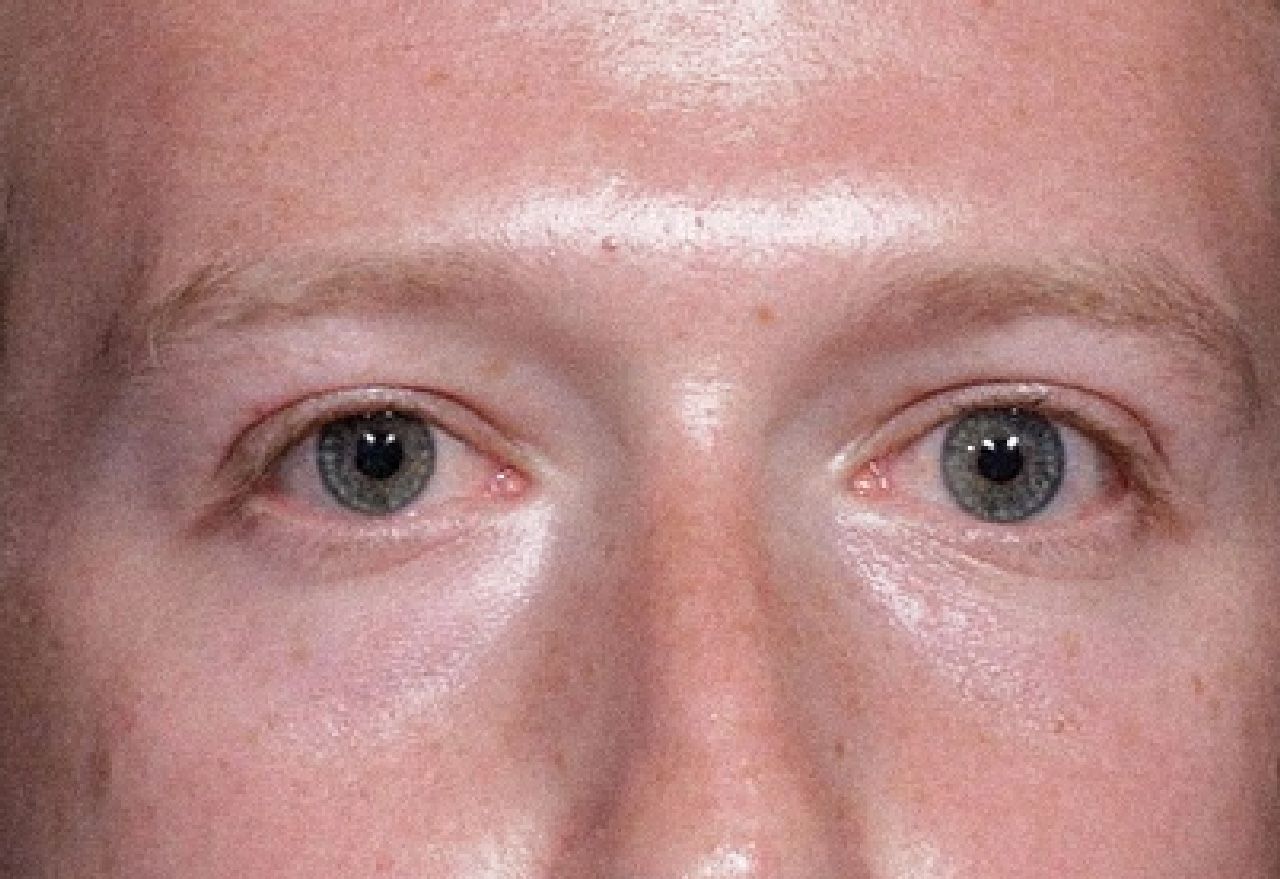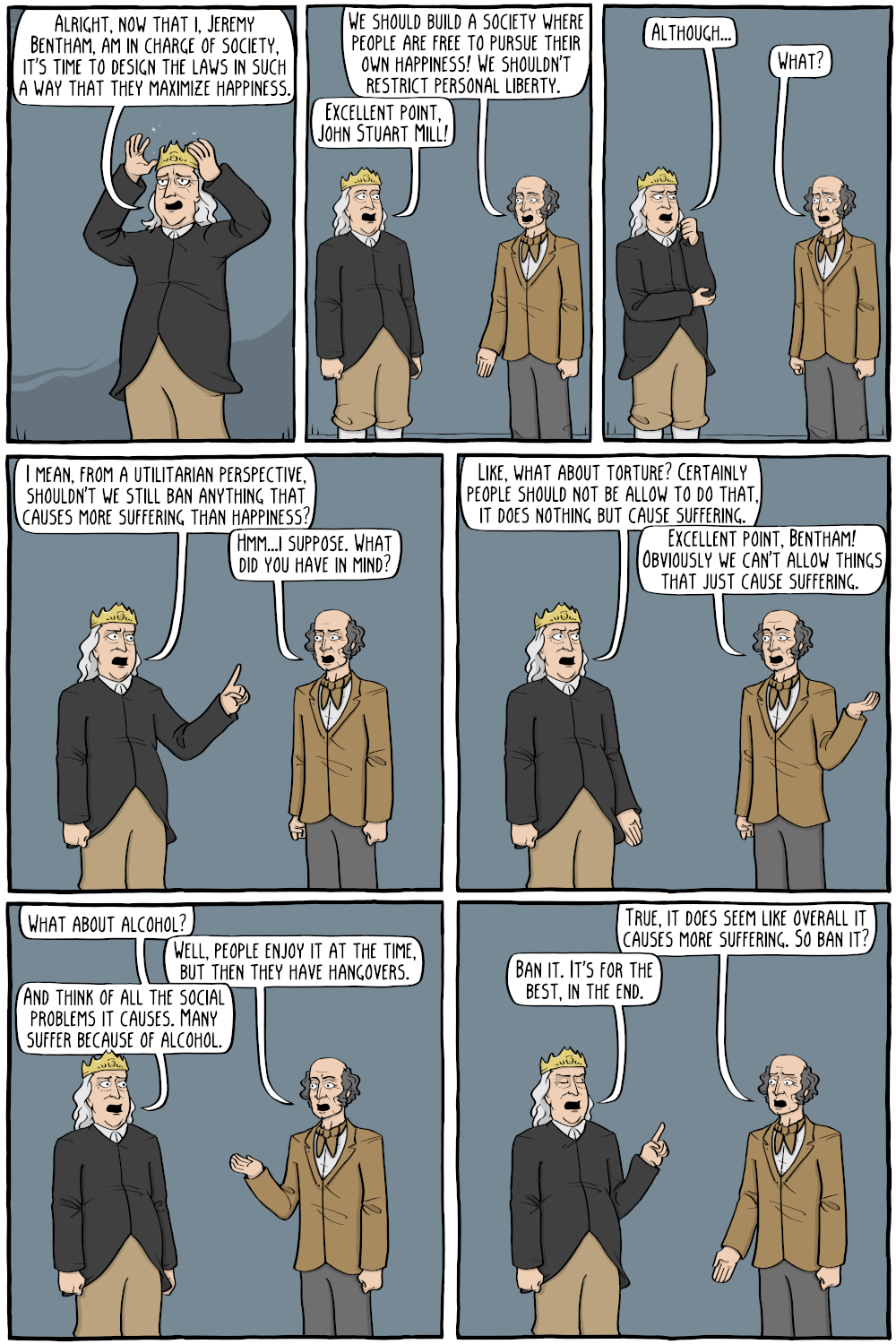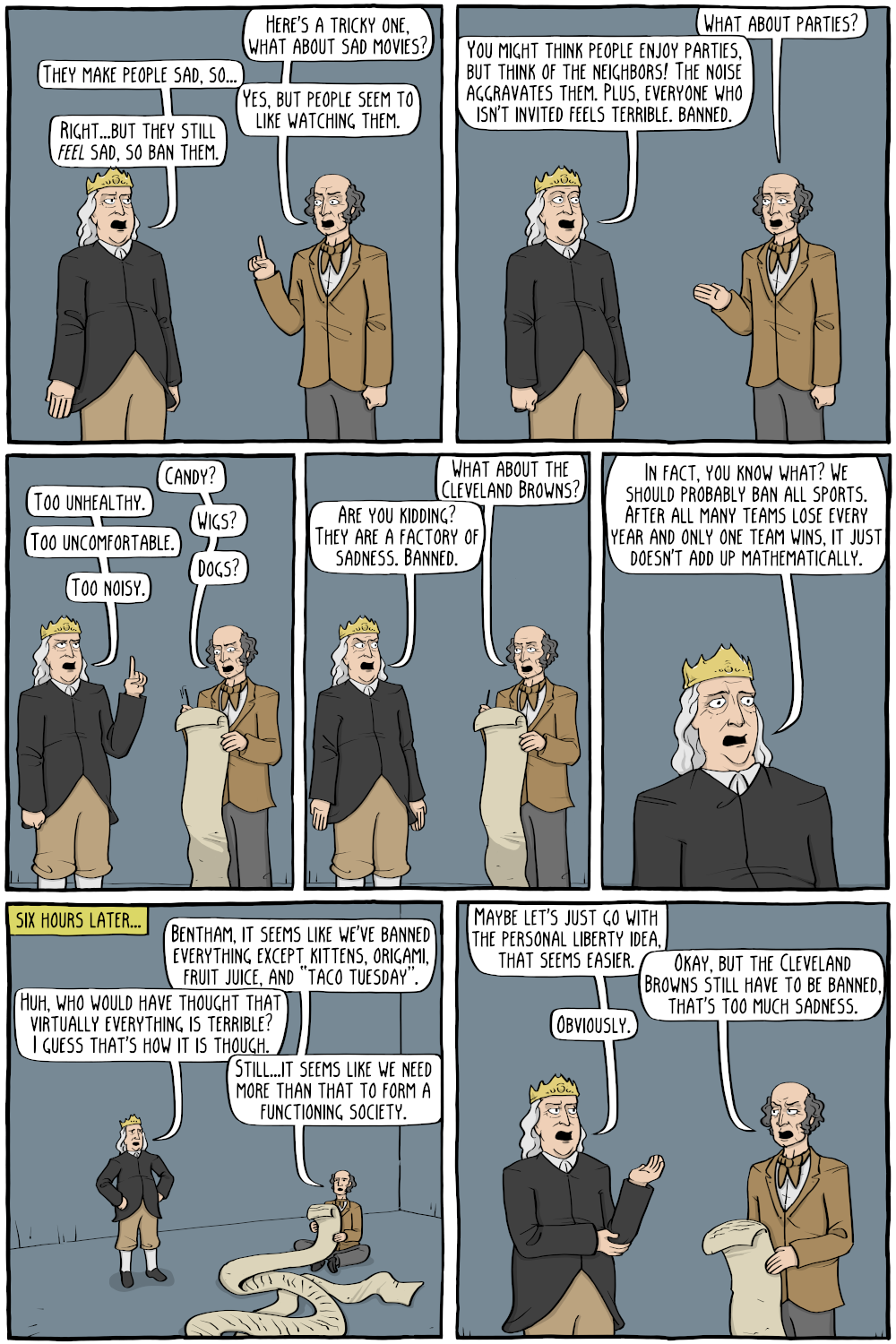What We Want Doesn’t Always Make Us Happy (Bloomberg)

Much of modern economic theory is based around a simple idea: Human beings maximize utility. But what is utility? Many people think of it as happiness or pleasure; British philosopher Jeremy Bentham, the inventor of utilitarianism, conceived of it this way. But this isn't how modern economists think of the concept. To an economist, utility simply means how much people want something. If an economist observes people working hard and making sacrifices to buy houses, then the conclusion is that houses must have lots of utility to those people. (…)
There are certainly reasons to criticize this philosophical approach. First of all, people sometimes make choices they come to regret. Smokers know they should quit now, but they put it off and years later end up wishing they had shown a little more fortitude. So should society care about people’s present selves, or their future selves?
Bentham’s utilitarianism conceived of a good society as one that makes its people happy. But what if the things people desire don’t bring them happiness? (…) Happiness research has led to some surprising and troubling discoveries. People seem to reliably seek out a few things that make them unhappy.
One of these things is Facebook, by far the world's largest social-networking site. (…) Economists (…) investigated how much money they had to pay Facebook users in order to get them to deactivate the Facebook app for one or two months. They found that the median amount was $100, and the average was $180 (the latter being larger because a few users really loved Facebook). [They] also found that the people who deactivated Facebook as part of the experiment were happier afterward, reporting higher levels of life satisfaction and lower levels of depression and anxiety. The change was modest but significant — equal to about 25 to 40 percent of the beneficial effect typically reported for psychotherapy.
Why are people willing to pay so much money for something that reduces their happiness? (…)
So what should society do about the disconnect between utility and happiness? (…)
https://www.bloomberg.com/opinion/articles/2019-05-01/what-we-want-doesn-t-always-make-us-happy


from the excellent Existential Comics https://www.existentialcomics.com/comic/325
